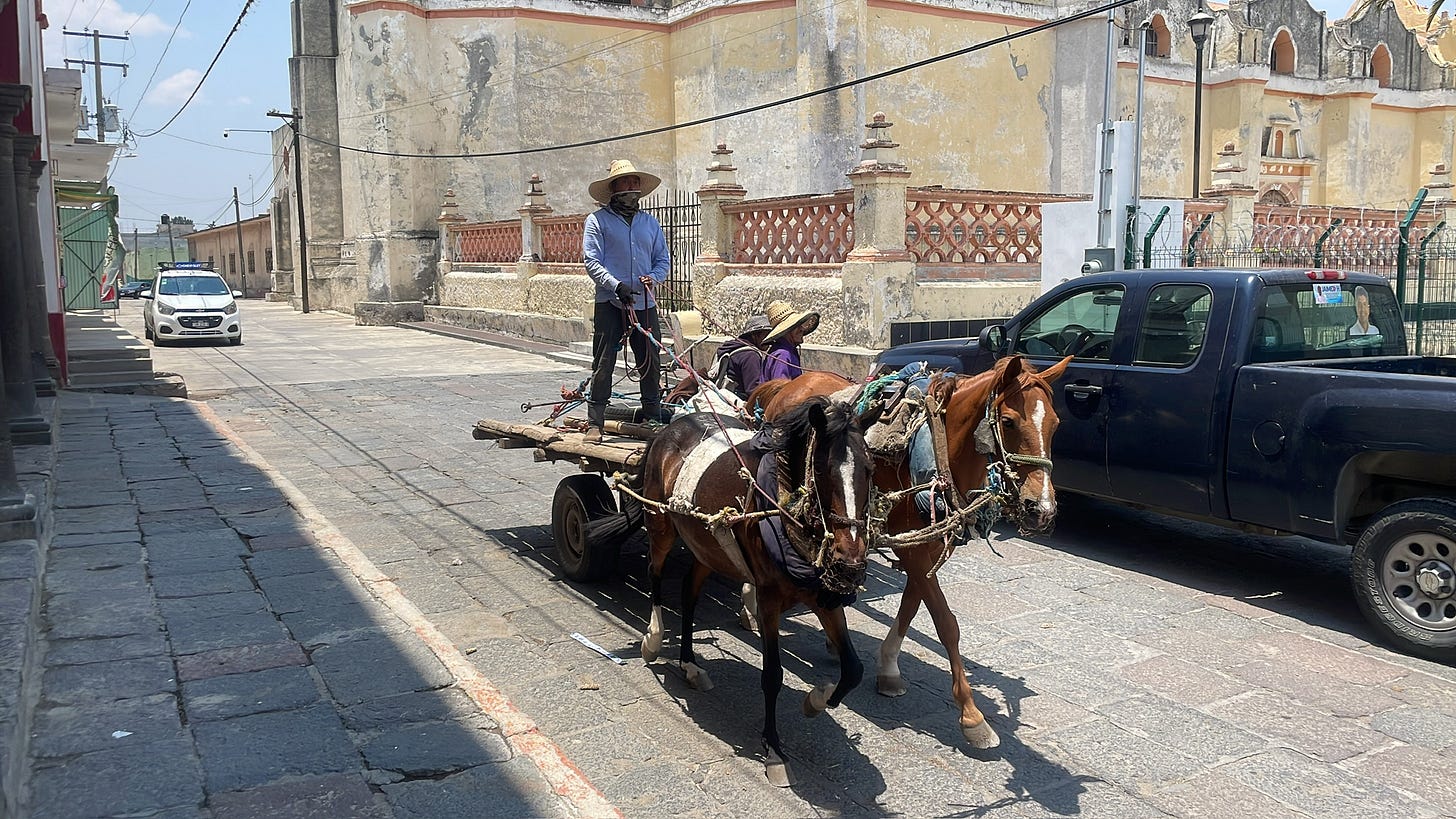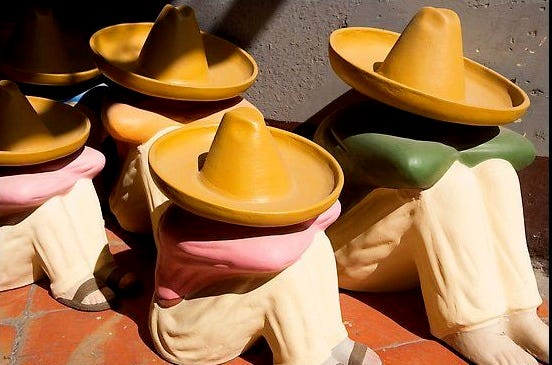Eloy and the Cow: A Story of Love, Sacrifice, and Grilled Cheese
Lessons on resilience, unlearning, and the quiet strength of an extraordinary man
Eloy is an extraordinary person, and his wife is no exception. Together, they have built a family where three of their five children are now married and have settled in nearby communities. Their youngest son has his first girlfriend and is starting a small marketing business in his community, creating ads for grocery stores, taco stands, stationery shops, and, most notably, party favors for different churches. But today, we're not talking about him. Today, I want to write about Eloy.
He is an honest and hardworking farmer. From the moment I met him, I was struck by his features—uncommon among the men in this area—but even more so by his eloquence and leadership, qualities that aren’t easy to find around here. Still, it took us some time to get to know each other before we could work together and, eventually, build a friendship. A friendship that led to a small tradition: every time I pass through the area, I have dinner at his house. In those dinners, I’ve had some of the deepest conversations since arriving in the Valle de Serdán. He’s always eager to hear about the places I’ve worked, the projects I’m involved in, and the dreams that drive me to try to do something for this world.
One evening, he told me that his eloquence came from a time in his youth when he tried to enter politics. He wanted to create real change. But, in his own words, he was fortunate enough to be disillusioned early and realize how difficult it was to change the system. So, he decided to return to the fields, where he has remained ever since. What frustrated him the most from that time was an incident a few years ago: a community center called La Casa del Campesino (The Farmer’s House) was painted with stereotypical images—men in sombreros and rebozos, a bottle of tequila at their side. He told me the story indignantly, then turned to me with a question:
"Do you really think this is what farmers look like? Drunk and submissive?"
I didn’t answer. Not because I didn’t have one, but because it wasn’t necessary. If I thought that, I wouldn’t be here with them. I work with them because their example and perseverance inspire me. Besides, I’ve never actually seen anyone wear a rebozo.
Eloy has also shared with me how difficult it has been for him to unlearn the machismo he was raised with. He told me that migrating illegally to the United States opened his eyes to the fact that the way he treated women wasn’t the only way. Now, back home, seeing his married sons treating their wives with much more respect challenges him constantly. He knows it’s the right way and does his best not to repeat what he was taught, but the internal struggle is still there.
After so many conversations like this, there was a question I could no longer hold back. Because Eloy knows exactly how to get my attention—he only has to invite me over for some crispy cheese tacos. So I finally asked:
"Where do you get that cheese?"
"My wife, Paty, makes it," he replied.
As simple as his answer was, it surprised me. This isn’t a dairy-producing area. In two years of traveling across this plain, I’ve never seen a cow. Sheep and goats, maybe, but never a cow. There are no dairies or cheese shops. So, of course, I needed to know more.
"When I stole my wife…" he began.
Hold on. Stealing a wife might sound scandalous, but in some local customs, it simply means getting married without the bride’s parents’ blessing.
Back to the story: when Eloy married Paty, he promised her that the first thing he would do was buy a cow so that when they had children, they would have milk to drink. I don’t doubt that this benefited their development. There are many debates about whether drinking cow’s milk is good or not, but here, what matters is that in a place with such severe nutritional deficiencies, having a cow gave them a massive advantage. The decision itself was impressive enough, but even more so when he told me about all the sacrifices he had to make to buy, feed, and care for it. Meanwhile, Paty started learning how to make cheese, yogurt, and cream, which she still sells to her neighbors today.
It may seem like a simple story, but that cow’s story stayed close to my heart. I don’t yet know exactly what lesson it carries, but it resonates deeply with me.
Tonight, I stopped by to visit Eloy. He had just come back from the fields, covered in dirt—except for his hands, which were clean. As I stepped through the gate, he greeted me with a smile.
"Tonight, we’re bachelors!" he said, laughing.
Then he added, "It’s a good thing that, despite being machista, my father told me to learn how to do everything—so that if my wife ever got mad at me, I wouldn’t go hungry."
I stepped into his small kitchen, where a wood-burning stove crackled, three pans sizzling on top: one with black beans, another with a pork chop, and the third… well, you can probably guess. Grilled cheese.
We laughed, joking about how I was going to critique his seasoning since Paty had set the bar high in their kitchen. He plated everything, and we sat down to eat. That’s when he told me his wife wasn’t home—she had gone to assist in the birth of their next grandchild.
He looked worried. A storm is coming tomorrow, and his wife is supposed to return. But their truck is broken, so he plans to leave early in the morning by bus to make sure nothing happens to her on the way back.
His eyes glistened as he spoke about her. Not with the tears of a macho, but with the tears of a man who loves his wife.
And for so many reasons like this—besides making the best cheese I’ve ever tasted—Eloy is, without a doubt, an extraordinary person.







